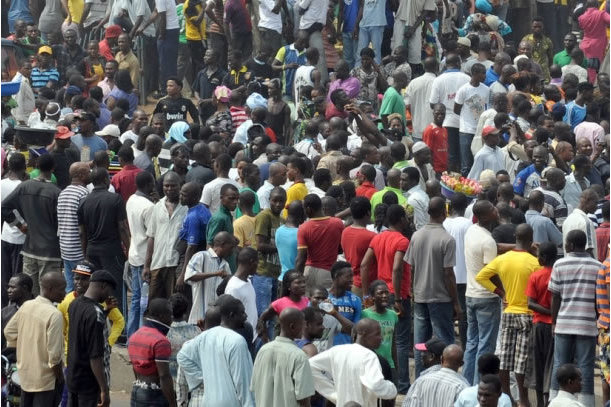Latest News
Facebook develops AI-powered population density maps of Africa

News Highlight
Facebook says the new artificial intelligence-powered high-resolution maps will boost the ability of humanitarian aid and relief agencies to assist people in need.
Facebook is partnering non-profits and research organisations, including the Columbia University’s Center for International Earth Science Information (CIESIN), to create detailed population density maps of Africa. The new artificial intelligence-powered high-resolution maps will boost the ability of humanitarian aid and relief agencies to assist people in need.
Using artificial intelligence (AI) and big data, Facebook is addressing the large-scale social, health and infrastructure challenges in Sub-Saharan Africa (SSA). The social networking service company says it is leveraging its expertise in data science, AI and machine learning to create detailed and accurate maps of local populations.
According to a statement released by Facebook on Tuesday, the Missing Maps Project in Malawi used these AI-powered maps to filter out 97 per cent of the terrain that is uninhabited. This helped to coordinate the activities of the 3,000 Red Cross volunteers in Malawi who visited up to 100,000 houses, educating people about measles and rubella vaccines.
In addition to assisting the Red Cross and Missing Maps Project in Malawi, the maps have also been used by other organisations such as the Bill and Melinda Gates Foundation, the World Bank and the Humanitarian OpenStreetMap, as well as in Tanzania to kick-start renewable electrification efforts to rural areas.
The Facebook team is using AI to efficiently crunch through data at a petabyte scale. Without the power of AI, the company said this would have required countless hours for volunteers to comb through millions of square miles of pictures to identify which contained a tiny town or remote village.
In Africa, the team found approximately 110 million buildings in just few days of examining 11.5 billion individual images to ascertain if they contained buildings. In partnership with CIESIN, Facebook ensures that the maps use the best available administrative data for all countries involved. The Facebook population density maps project now aims to keep adding new countries and continents.
“Having started my career at USAID (United States Agency for International Development) working on malaria control, I have witnessed first-hand the critical role that accurate data plays in the effectiveness of humanitarian efforts,” said Laura McGorman, a public policy manager at Facebook. “What is exciting about projects like these is that they provide an opportunity for our company to contribute to these efforts through our expertise in data and machine learning.”
According to Facebook, the social media giant started developing population density maps to provide better tools to support connectivity efforts around the world. Addressing privacy concerns, Facebook said no data of its users has been or will be used in the project and the census and satellite data used contain no personally-identifiable information.
Related News
Latest Blogs
- How Tinubu is ensuring equitable access to public services
- Nigeria’s economic reform faces new threats
- What Ould Tah’s tenure at BADEA reveals about his AfDB candidacy
- Implementation strategy crucial for the success of 12-4 education policy
- A senator’s suspension threatens the right of representation
Most Popular News
- Artificial intelligence can help to reduce youth unemployment in Africa – ...
- Nigeria records $6.83 billion balance of payments surplus in 2024
- Tariffs stir inflation fears in US but offer targeted industry gains ...
- Soaring civil unrest worries companies and insurers, says Allianz
- Tinubu appoints new Board Chair, Group CEO for NNPC Limited
- CBN net reserve hits $23.1 billion, the highest in three years









